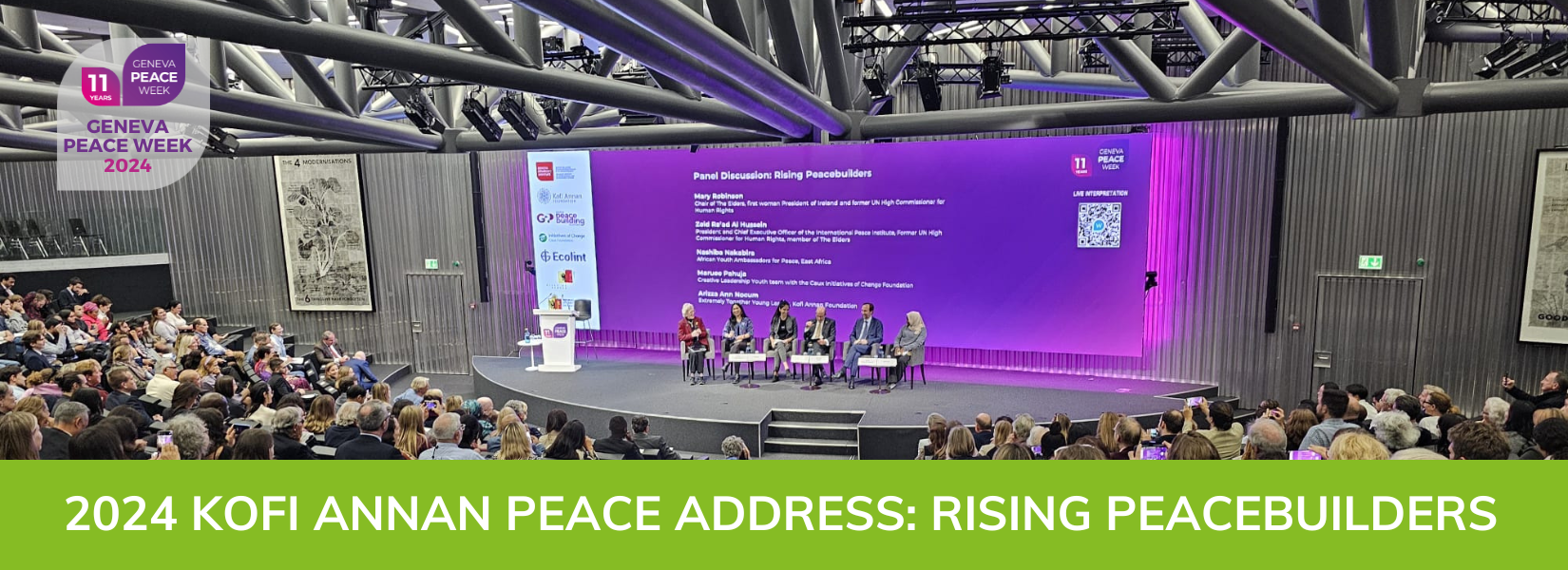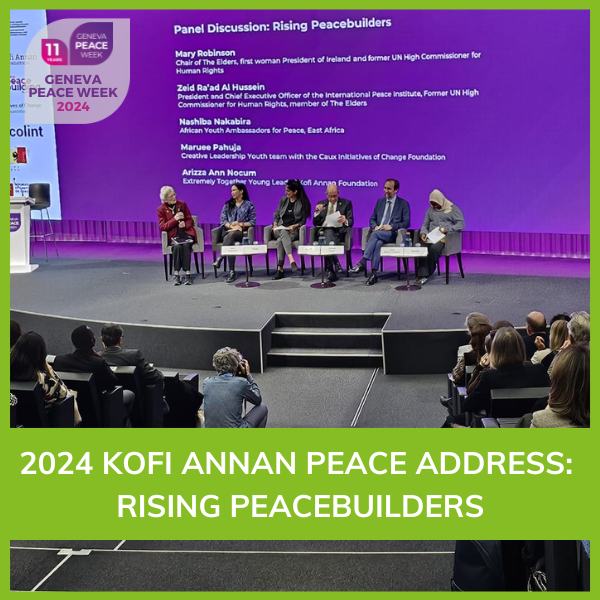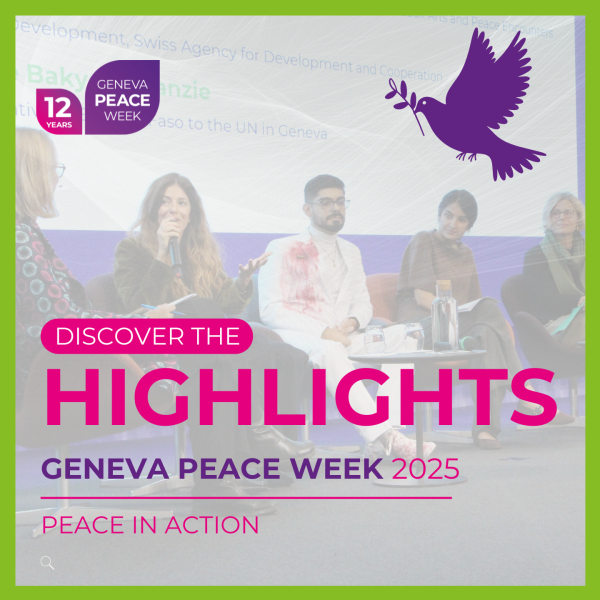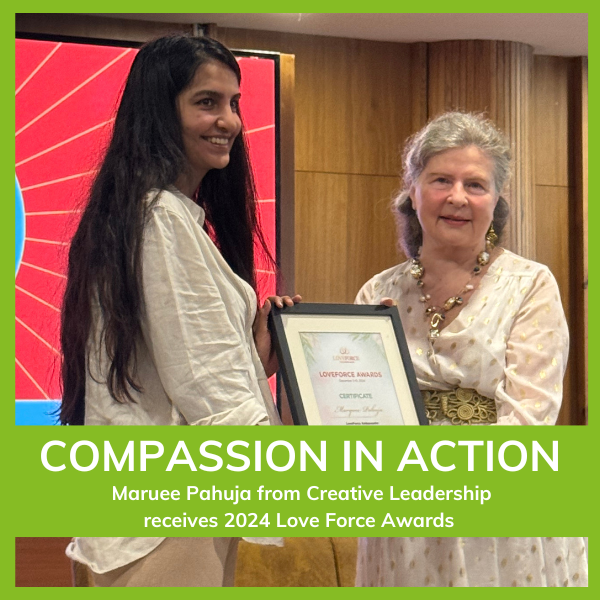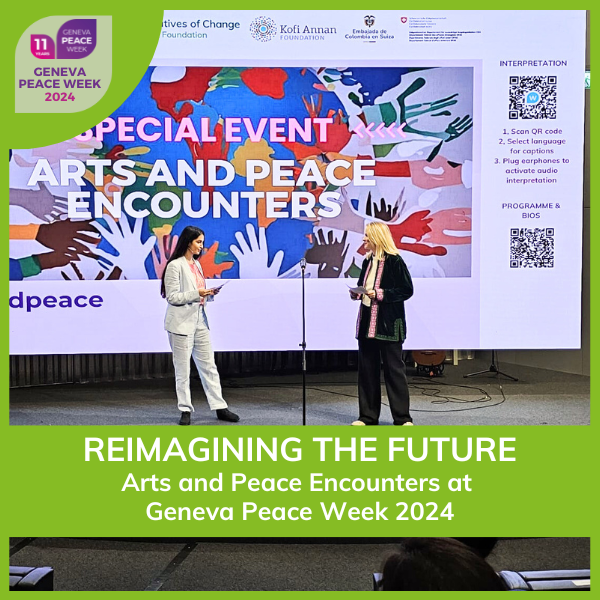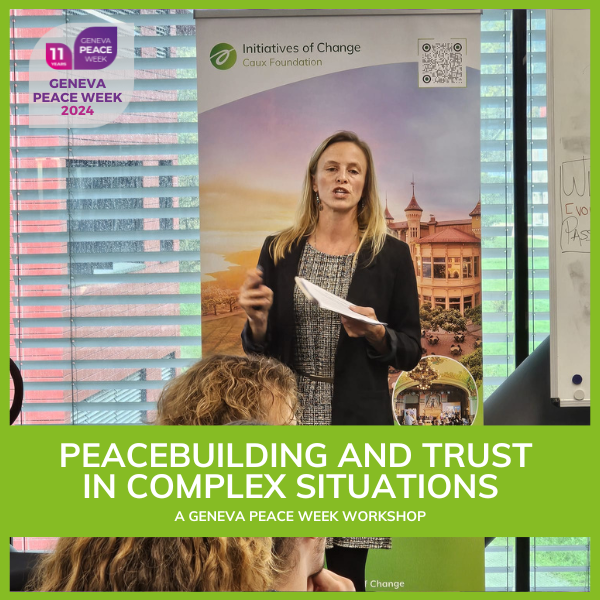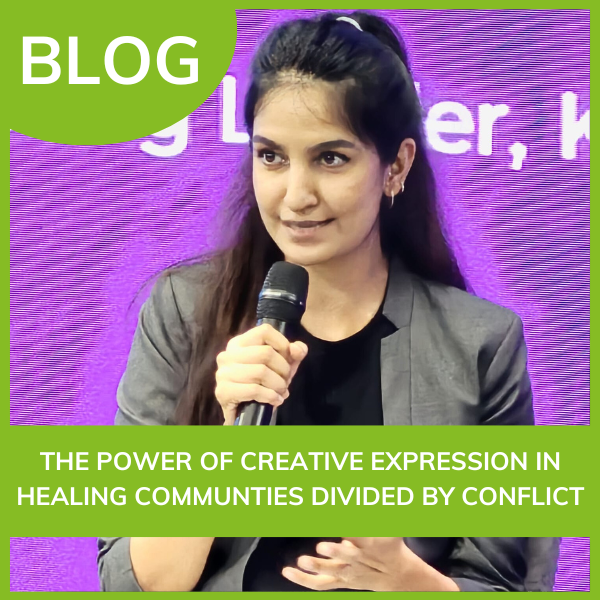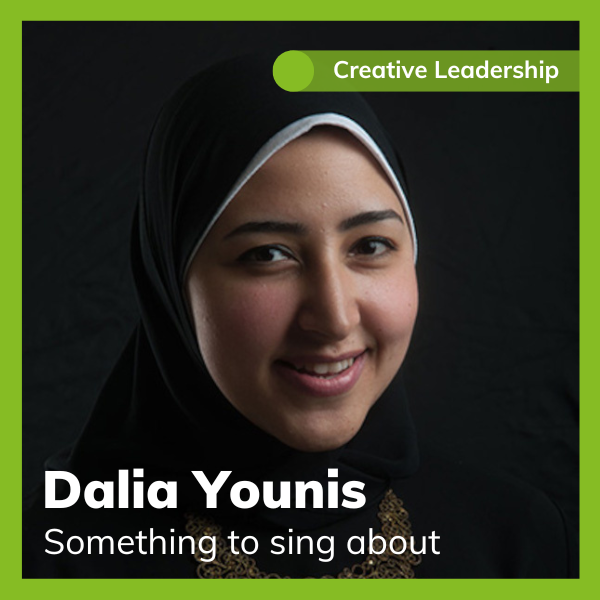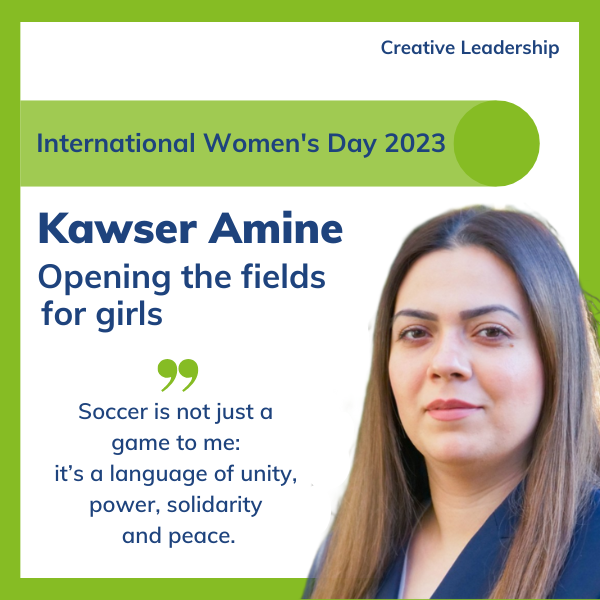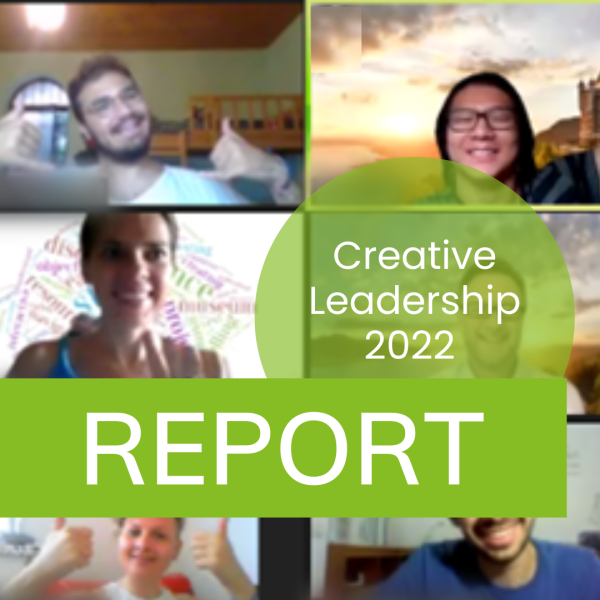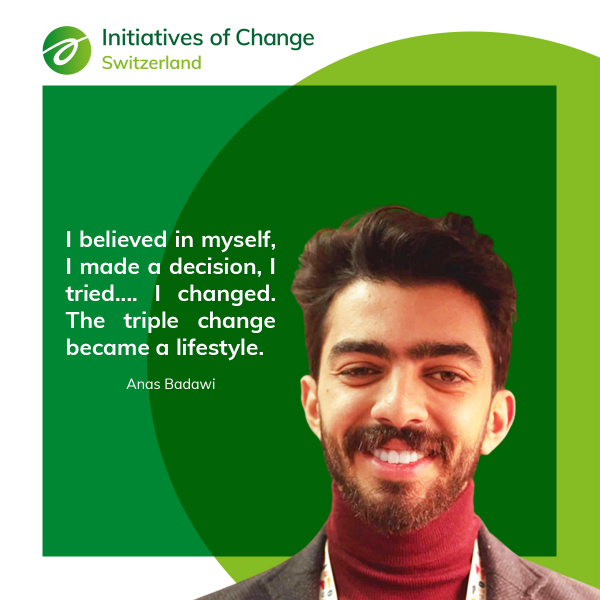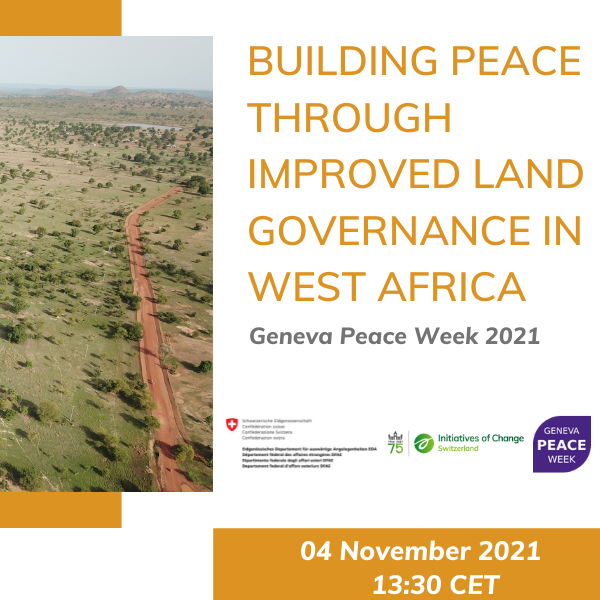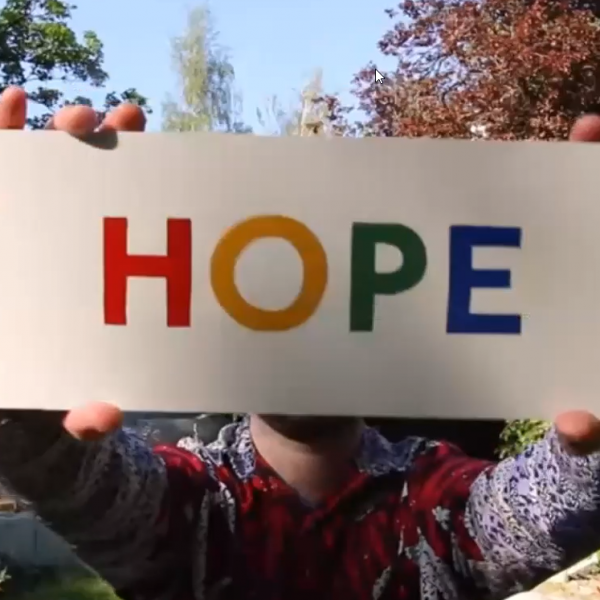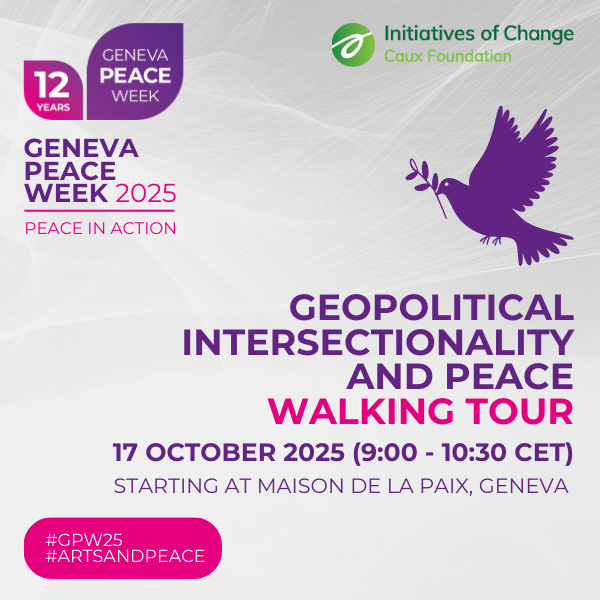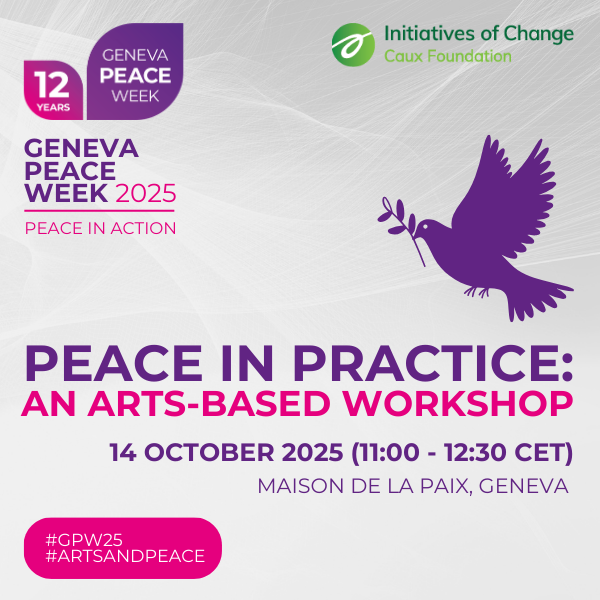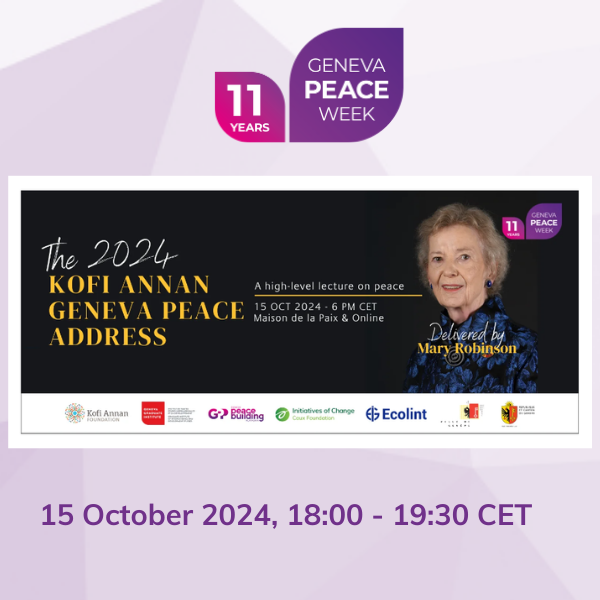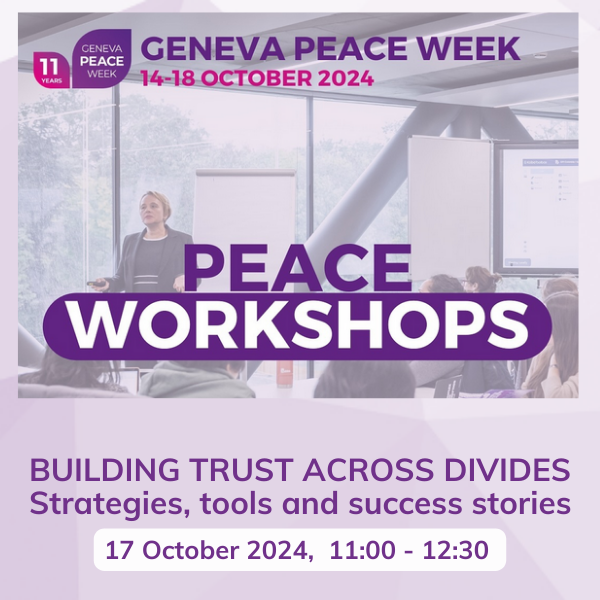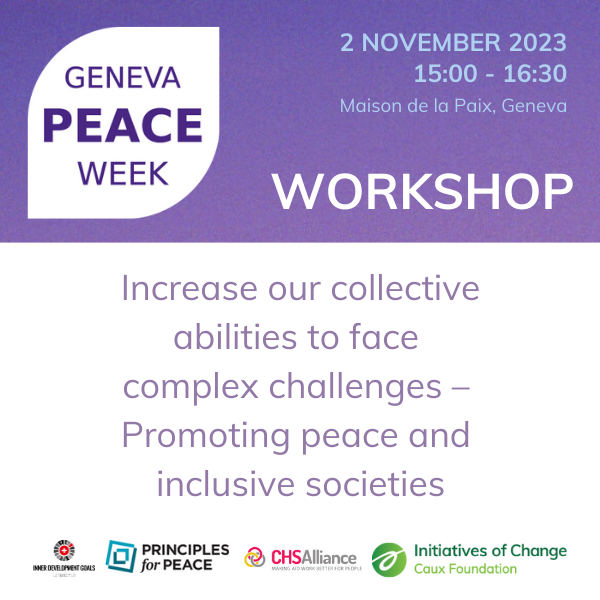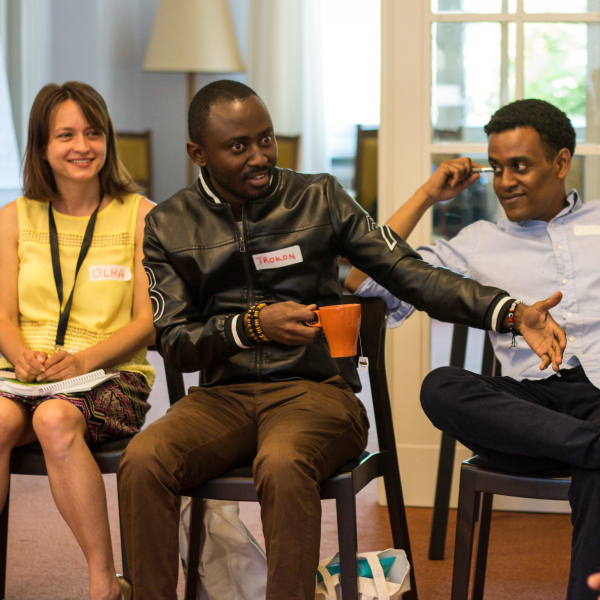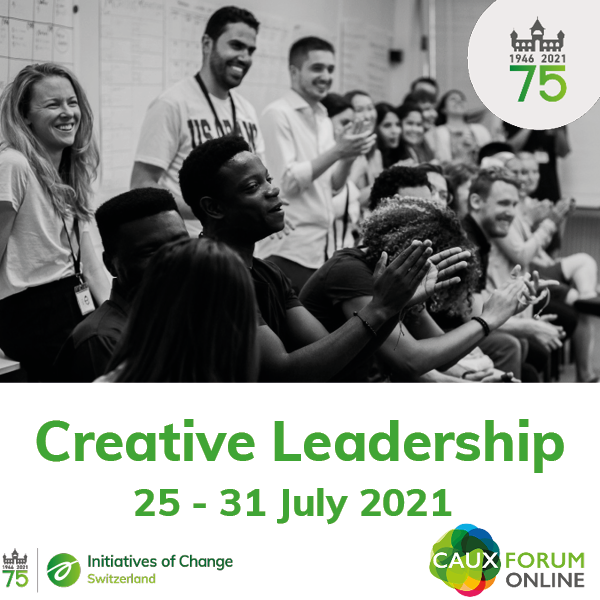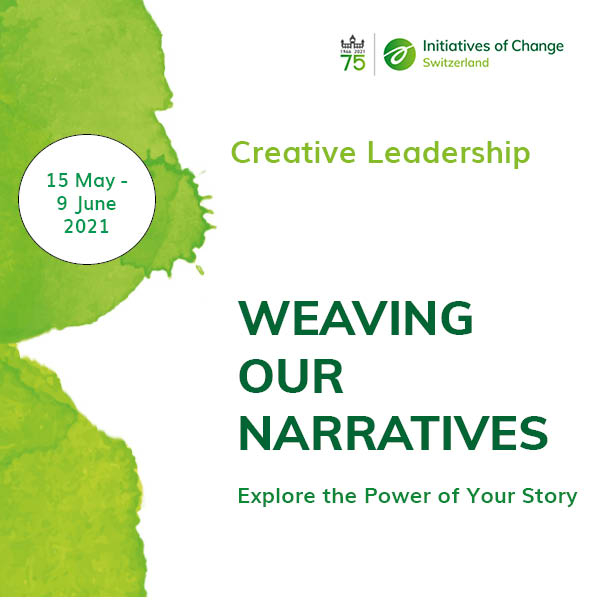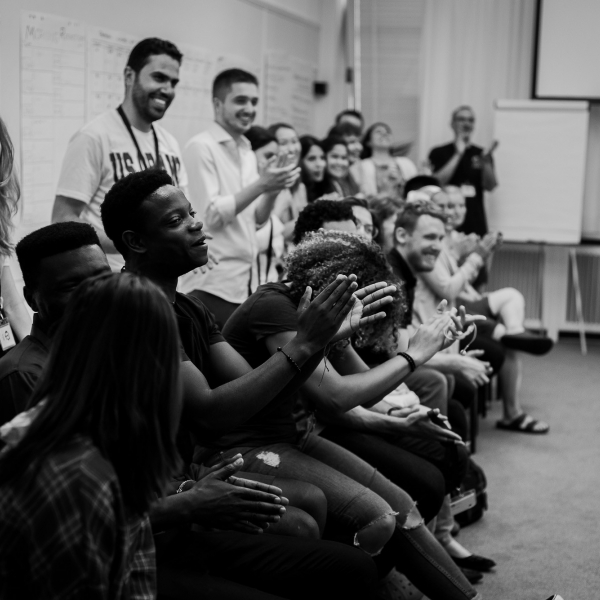Rising Peacebuilders: Preparing people for peace
Geneva Peace Week 2024: Kofi Annan Peace Address
16/10/2024
The Caux Initiatives of Change Foundation was proud to partner on 15 October 2024 with the Kofi Annan Foundation, the Geneva Peacebuilding Platform, the Geneva Graduate Institute and the International School of Geneva, on the 4th edition of the high-level Kofi Annan Geneva Peace Address, organised with the support of the Republic and State of Geneva and the City of Geneva.
“As crises multiply, we are in dire need of courageous and ethical leadership!” said moderator Ahmad Fawai, in his opening words at the Peace Address, entitled “Rising Peacebuilders”. His words set the tone for an inspiring event on the importance of good leadership and the role of youth in peacebuilding.
In his welcome address, Prof Achim Wennmann, Director of Strategic Partnerships at the Geneva Graduate Institute, spoke about the importance for peacebuilders to “go back to basics” to convince people that “peace is better than war. We need to prepare people for peace.”
Marie Barbey Chappuis, Member of the Executive Council of the City of Geneva, admitted that “talking about peace in these troubled times is not an easy task.” She continued: “But there is one thing that current times have shown: There has never been such a need for new perspectives, for radical changes”. Referring to the title of the Peace Address, she also underlined the importance of new insights from the younger generations.
In her inspiring keynote speech, Mary Robinson, Chair of the Elders, first female President of Ireland, and former UN High Commissionner for Human Rights, called for a leadership of courage which prioritizes a better future over short-term political interests. “Civilians are paying the price of the failings of political leaders.”, she said and explained that “leadership for peace has never been more urgent and has never been so much lacking.”
She also passionately called for parity of genders in leadership as gender equality is highly relevant in peacebuilding activities, underlining that the dominance of male leadership without the balancing perspective of female leadership was very concerning: She explained women leaders tended to be more collaborative in their approach and added: “It’s not that women are better than men, but the world needs a balance.”
In the following panel discussion, Mary Robinson and Zeid Ra’ad Al Hussein, President and CEO of the International Peace Institute (IPI) and Former UN High Commissioner for Human Rights, were joined by three young rising peacebuilders to share their ideas and insights on peacebuilding.
When asked what advice they could give to young people, both Mary Robinson and Zeid Ra’ad Al Hussein, encouraged them to be open to learn and to be attentive to others. Mary Robinson said: “Learn from the people on the ground. Listen to people!” and Zeid Ra’ad Al Hussein added: “The message has to be crystal clear. It cannot be compromised, but you can package it in a way that speaks to people.”
Nashiba Nakabira, African Youth Ambassador for Peace from East Africa, spoke about the challenge of turning religious, intergenerational and cultural diversity into a strength to tap into to bring everyone on board to promote peace. She also expressed the need for safe spaces for young people to access relevant information and to engage.
Maruee Pahuja (India) from the Caux Initiatives of Change Foundation’s Creative Leadership youth team spoke passionately about the importance of the arts in peacebuilding processes. She explained that arts is a powerful tool for healing communities divided by conflict, offering a safe space for individuals to process grief and transform pain and trauma into healing: “Arts can be used for impression, but also for expression.” From storytelling to immersive artistic experiences, artistic interventions help build resilient relationships and challenge limiting beliefs. Maruee concluded by calling for global institutions to support the use of the arts in peacebuilding efforts, recognizing their potential to restore hope, bridge divides, and honour our shared humanity: “Art approaches need to be taken more seriously in conflict resolution.”
Maruee is also an Expressive Arts Therapy practitioner and a member of the Arts and Peace Encounters programme, launched by the Caux Initiatives of Change Foundation earlier this year. By 2030, our Foundation’s goal is for the Caux Palace, our centre for dialogue and peacebuilding near Montreux, to become a globally recognized convening center that champions the role of arts and dialogue in inspiring, connecting, and equipping individuals with the skills and qualities needed to foster peace.
Arizza Ann Nocum (Philippines) from Kofi Annan Foundation’s Extremely Together initiative, spoke about the problem of disinformation as “a war within a war”, calling the audience to hold big tech companies accountable for the way they treat and pass on information. She explained that we needed to be equipped to deal with the different sort of information each of us is exposed to daily and challenged: “Are we getting the right education? We need a different kind of education where critical and moral leadership is important.”
In her final words Arizza echoed Mary Robinson’s call for long-view leadership backed up by long-view flexible funding for young people and stressing that “we are here because we are desperate. This is our future at stake”.
At the end of the panel discussion, she concluded with a plea to the current decision-makers: “World leaders, please don’t undo our efforts in peacebuilding! (…) Sometimes it feels as if our only weapon is hope.”
